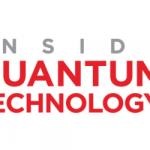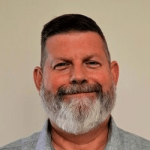Quantum News Briefs May 22: QunaSys Launches “Quantum Algorithm Grand Challenge”; University of Chicago joins global partnerships to advance quantum computing; Quantum physics proposes a new way to study biology + MORE

Quantum News Briefs May 22: QunaSys Launches “Quantum Algorithm Grand Challenge”; University of Chicago joins global partnerships to advance quantum computing; Quantum physics proposes a new way to study biology + MORE.
QunaSys Launches “Quantum Algorithm Grand Challenge”
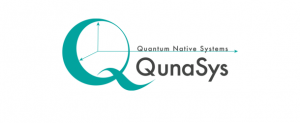 QunaSys is inviting students, researchers, and anyone learning and researching quantum computation and quantum chemistry worldwide to participate in the Quantum Algorithm Grand Challenge (QAGC).
QunaSys is inviting students, researchers, and anyone learning and researching quantum computation and quantum chemistry worldwide to participate in the Quantum Algorithm Grand Challenge (QAGC).
The challenge began on May 3, 2023, and the final submission deadline is July 31, 2023. The top four individuals or teams will have the opportunity to present their algorithms at the workshop hosted by QunaSys during IEEE Quantum Week 2023, taking place in Seattle, USA from September 17 to 22, 2023. Additionally, the top three individuals or teams will receive cash prizes: USD 10,000 for the first place, USD 5,000 for the second place, and USD 3,000 for the third place.
Contest-based research has successfully driven industrialization in fields like machine learning and robotics. It involves benchmarking real problems and competing for improvements. QAGC provides a quantum algorithm platform that evaluates proposed algorithms based on the same criteria, inspiring researchers worldwide to enhance their algorithms through competition. The ultimate goal is to expedite the industrial implementation of quantum computing.
The challenge problem for QAGC is to calculate the ground energy of the modified Fermi-Hubbard model, which closely resembles molecular problems but with a known exact solution. Using this model enables benchmark beyond classically simulatable size. The evaluation will be based on accuracy, measured by the absolute difference between proposed results and the exact solution. The evaluation system will consist of 8 qubits, and the estimated running time should not exceed 1000 seconds.
QAGC presents a perfect opportunity for quantum computing enthusiasts to showcase their skills and creativity. By participating, you will have the chance to push the boundaries of NISQ algorithms and contribute to the advancement of quantum computing technology. Additionally, you will gain valuable insights from other researchers and developers worldwide while becoming part of the thriving quantum computing community.
Join the race today to take NISQ algorithms to the next level! Register for the Quantum Algorithm Grand Challenge now. To learn more about the challenge and how to participate, visit https://www.qagc.org/ for further information.
University of Chicago joins global partnerships to advance quantum computing
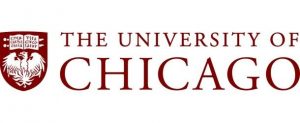 On May 21, alongside world leaders at the G7 Summit in Japan, the University of Chicago formalized groundbreaking agreements with industry and university partners to transform the future of quantum technology. Quantum Tech Briefs summarizes UofChicago article.
On May 21, alongside world leaders at the G7 Summit in Japan, the University of Chicago formalized groundbreaking agreements with industry and university partners to transform the future of quantum technology. Quantum Tech Briefs summarizes UofChicago article.
The first is a 10-year, $100 million plan with IBM, the University of Chicago and the University of Tokyo to develop the blueprints for building a quantum-centric supercomputer powered by 100,000 qubits. The second is a strategic partnership between the University of Chicago, the University of Tokyo and Google, with Google investing up to $50 million over 10 years, to accelerate the development of a fault-tolerant quantum computer and to help train the quantum workforce of the future.
“Quantum-centric supercomputing taps modular architectures and quantum communication, and is how IBM plans to scale quantum computing,” said Jay Gambetta, IBM fellow and vice president of IBM Quantum. “Through our landmark partnerships with the University of Chicago and University of Tokyo, we will advance all aspects of quantum architecture and the integration of quantum and classical workflows. This includes hybrid cloud middleware for quantum, as well as error-resilience approaches such as quantum error mitigation and error correction. Ultimately this will enable us to tackle some of the most challenging problems we face as a global society.”
“Building a quantum computer is an ambitious undertaking that requires partnership,” said Hartmut Neven, vice president of Google Quantum AI. “We look forward to working with the University of Chicago and the University of Tokyo to advance the field.” Click here to read complete article on UofChicago website.
Quantum physics proposes a new way to study biology
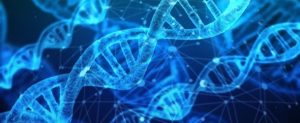 Quantum objects like atoms and molecules lose their “quantumness” when they uncontrollably interact with each other and their environment. In other words, a macroscopic collection of quantum objects is better described by the laws of classical mechanics. Everything that starts quantum dies classical. Clarice D. Aiello, at the University of California, Los Angeles is the author of a recent article discussing quantum biology that is summarized below by Quantum News Briefs.
Quantum objects like atoms and molecules lose their “quantumness” when they uncontrollably interact with each other and their environment. In other words, a macroscopic collection of quantum objects is better described by the laws of classical mechanics. Everything that starts quantum dies classical. Clarice D. Aiello, at the University of California, Los Angeles is the author of a recent article discussing quantum biology that is summarized below by Quantum News Briefs.
Quantum objects like atoms and molecules lose their “quantumness” when they uncontrollably interact with each other and their environment. In other words, a macroscopic collection of quantum objects is better described by the laws of classical mechanics. Everything that starts quantum dies classical. For example, an electron can be manipulated to be in two places at the same time, but it will end up in only one place after a short while—exactly what would be expected classically.
In a complicated, noisy biological system, it is thus expected that most quantum effects will rapidly disappear, washed out in what the physicist Erwin Schrödinger called the “warm, wet environment of the cell.” Chemists, however, have for a long time begged to differ. Research on basic chemical reactions at room temperature unambiguously shows that processes occurring within biomolecules like proteins and genetic material are the result of quantum effects.
The tantalizing possibility that subtle quantum effects can tweak biological processes presents both an exciting frontier and a challenge to scientists. Quantum biology is one of the most interdisciplinary fields to ever emerge. Research with potentially transformative implications for biology, medicine and the physical sciences will require working within an equally transformative model of collaboration.
The existence of quantum biology as a discipline implies that traditional understanding of life processes is incomplete. Further research will lead to new insights into the age-old question of what life is, how it can be controlled and how to learn with nature to build better quantum technologies.
The author of this article is Clarice D. Aiello, at the University of California, Los Angeles. His lab and the University of Surrey’s Quantum Biology Doctoral Training Centre have organized Big Quantum Biology meetings to provide an informal weekly forum for researchers to meet and share their expertise. Click here to read Dr. Aiello’s article in-entirety in May 16 Phys.org
Yale & UConn Receive $1 million grant from NSF to plan a “quantum corridor” for new tech, jobs in CT
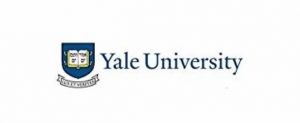 Yale and the University of Connecticut will use a $1 million planning grant from the U.S. National Science Foundation (NSF) to formally propose Connecticut as a regional hub for quantum-related research, technologies, and jobs. Quantum News Briefs summarizes the May 11 announcement.
Yale and the University of Connecticut will use a $1 million planning grant from the U.S. National Science Foundation (NSF) to formally propose Connecticut as a regional hub for quantum-related research, technologies, and jobs. Quantum News Briefs summarizes the May 11 announcement.
The grant, announced May 11, is part of the NSF Engines program, a national effort to turn cutting-edge research into new technologies that create jobs and promote economic growth. Congress authorized the program last year in the CHIPS and Science Act. Yale and UConn will use the grant to develop plans for nurturing new quantum-related companies, identify ways quantum research can help existing companies, and train a new workforce for quantum manufacturing jobs.
The planning project could lead to a potential $160 million award from the federal government — money that would be used to implement the proposed ideas into a Quantum-CT Regional Innovation Engine.
“These NSF Engines Development Awards lay the foundation for emerging hubs of innovation and potential future NSF Engines,” said NSF Director Sethuraman Panchanathan. “These awardees are part of the fabric of NSF’s vision to create opportunities everywhere and enable innovation anywhere. They will build robust regional partnerships rooted in scientific and technological innovation in every part of the nation.”
The proposed Quantum-CT Regional Innovation Engine brings together a broad coalition of public and private partners, in addition to Yale and UConn: the Connecticut governor’s office and several state agencies; municipal leaders from New Haven, Hartford, Waterbury, and Stamford; the Connecticut Business and Industry Association; companies, including Raytheon Technologies, Boehringer Ingelheim, and Quantum Circuits Inc. (a New Haven start-up founded by Yale physicists); the Connecticut Workforce Council; and business development and leadership groups including Advance CT, CT Next, and the Connecticut Small Business Development Center. Click here to read Yale announcement in-entirety.




















